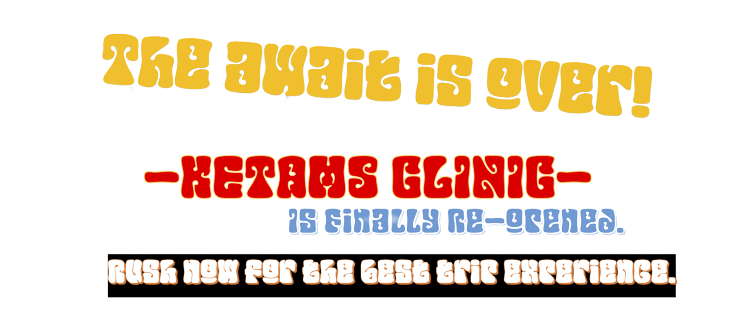Everything You Need to Know About Psychedelic Mushrooms
Psychedelic mushrooms, often called “magic mushrooms” or simply “shrooms,” have captivated humans for centuries. These fungi contain powerful compounds that can alter perception, mood, and cognition. Whether you’re curious about their effects, how long they stay in your system, or how to grow them safely, this guide covers everything you need to know.
What Are Psychedelic Mushrooms?
Psychedelic mushrooms are fungi containing psychoactive substances, primarily psilocybin and psilocin. When ingested, these compounds interact with the brain’s serotonin receptors, leading to profound changes in perception and consciousness.
The Science Behind Psychedelic Mushrooms
Psilocybin is converted into psilocin in the body, which binds mainly to the 5-HT2A serotonin receptor. This interaction causes hallucinations, altered time perception, and changes in emotional state. The Multidisciplinary Association for Psychedelic Studies (MAPS) provides extensive research about these effects maps.org.
Common Types of Psychedelic Mushrooms
Some popular species include Psilocybe cubensis, Psilocybe semilanceata (commonly known as Liberty Caps), and Psilocybe cyanescens. Each species differs slightly in potency and appearance.
For detailed visual and identification guides, resources like PsychonautWiki offer a comprehensive database (psychonautwiki.org).
How Do Psychedelic Mushrooms Work?
The psychoactive effects arise primarily from psilocybin’s conversion into psilocin. Psilocin binds to serotonin receptors in the brain, altering neural activity, especially in regions related to perception, mood, and cognition. This leads to the classic psychedelic experience, which can last between 4-6 hours.
Scientific studies published in Nature have detailed these changes in brain connectivity during psilocybin use (nature.com article).
How Long Do Psychedelic Mushrooms Stay in Your System?
Psilocybin and psilocin are typically metabolized and eliminated from the body within 24 hours. However, detection windows vary based on the type of test and individual factors.
- Urine tests: Can detect psilocybin for up to 24-48 hours post-use.
- Blood tests: Usually detect compounds within 24 hours.
- Hair follicle tests: Rarely used but can detect use up to 90 days back.
Factors such as metabolism, hydration, and dosage affect detection time. For more detailed insights, see studies indexed on PubMed (PubMed: psilocybin detection).
Can Psychedelic Mushrooms Show Up in a Drug Test?
Most standard drug tests do not screen for psilocybin or psilocin. However, specialized tests are available for forensic or clinical purposes, though these are uncommon.
If you want to understand more about drug testing for substances like mushrooms, the National Institute on Drug Abuse has useful resources (drugabuse.gov).
How to Take Psychedelic Mushrooms Safely
Safety is paramount when using psychedelic mushrooms.
Dosage Guidelines
Beginners should start with a low dose of about 1-2 grams of dried mushrooms to minimize adverse effects.
Preparation Methods
Mushrooms can be consumed raw, brewed into tea, or mixed with food. Brewing as tea can reduce nausea and improve onset speed. For information on related substances with unique preparation, you can check products like 4-AcO-DMT, which has similar effects.
Set and Setting
The user’s mindset (“set”) and physical and social environment (“setting”) significantly influence the experience. A calm, safe place with trusted companions is ideal.
For a deeper understanding of psychedelic safety, the Centers for Disease Control and Prevention offer guidelines on drug safety in general (cdc.gov).
Can You Overdose on Psychedelic Mushrooms?
Physically toxic overdoses on psychedelic mushrooms are rare. However, extremely high doses can cause psychological distress, known as a “bad trip.” Symptoms may include anxiety, paranoia, confusion, and panic attacks.
If adverse effects occur, the best approach is to remain calm, seek a safe space, and have a sober companion present.
For detailed information on psychedelic safety and overdose potential, visit the US Department of Health and Human Services website (hhs.gov).
Can Psychedelic Mushrooms Go Bad?
Yes, psychedelic mushrooms can spoil if not stored properly.
Storage Tips
Keep dried mushrooms in airtight containers in a cool, dry, dark place to preserve potency and prevent mold growth. Vacuum-sealing is an excellent option.
How to Identify Spoiled Mushrooms
Look for visible mold, unusual odors, or changes in texture. Spoiled mushrooms should be discarded immediately to avoid health risks.
Growing Psychedelic Mushrooms at Home
Cultivating magic mushrooms is becoming increasingly popular but requires attention to detail.
Beginner’s Guide to Growing
Successful cultivation depends on sterile conditions, appropriate substrate (usually brown rice flour or rye grain), and humidity control. Beginners often start with Psilocybe cubensis strains.
For more info on growing and related products, you can visit the homepage.
Legal Considerations
Growing psychedelic mushrooms remains illegal in many countries and states. Before attempting cultivation, always research your local laws thoroughly. The Drug Policy Alliance tracks legislation trends and reforms (drugpolicy.org).
Legal Status of Psychedelic Mushrooms
The legality of psychedelic mushrooms varies worldwide. In many countries, possession and use are illegal, but some jurisdictions have decriminalized or legalized them for medical or research purposes.
In the United States, for example, Oregon legalized psilocybin therapy in 2020, and other cities like Denver have decriminalized possession.
The New England Journal of Medicine frequently publishes updates on psychedelic legalization and medical research (nejm.org).
Final Thoughts and Responsible Use
Psychedelic mushrooms have potential benefits but also risks. Education, respect for the law, and responsible use are critical for safe experiences.
For more comprehensive reading, visit Psychology Today’s psychedelics section or the World Health Organization drug safety information page (who.int).
Internal Links Recap for This Article (used naturally):
- Homepage (replaced all mushroom product links)
- 4-AcO-DMT
- 5-MeO-DMT
- Ayahuasca
- Ibogaine Powder
- Research Chemicals category
- Herbals category
- About Us
- Contact Us
- FAQ
- Blog
Let me know if you want me to polish or add meta titles/descriptions next!

